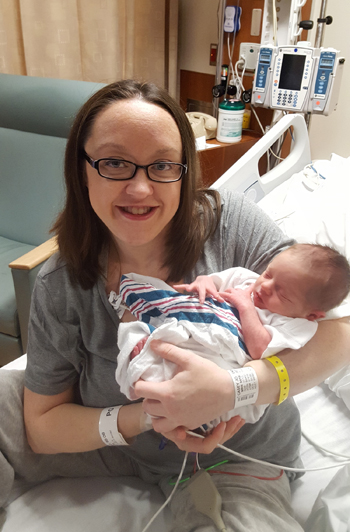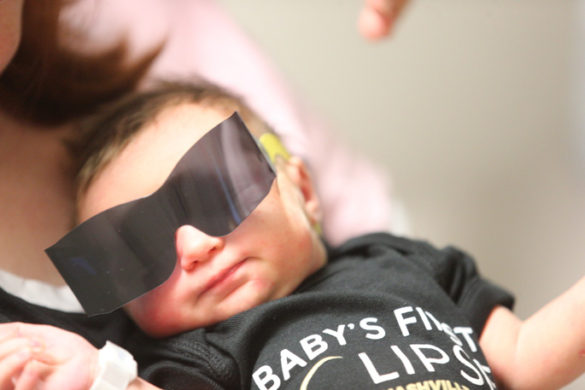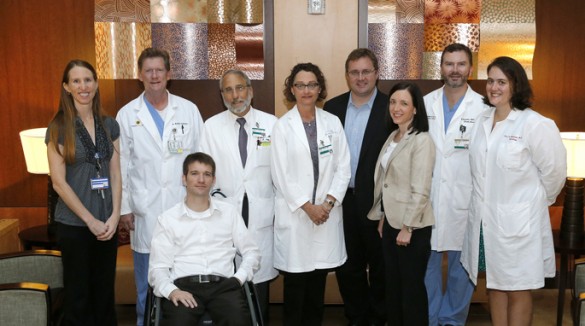Quick actions saved a new mother from any disabilities after she suffered a postpartum stroke last week in the Neonatal Intensive Care Unit at Monroe Carell Jr. Children’s Hospital at Vanderbilt.

Casey Tenpenny, 30, of Gallatin was walking down the hall in the unit when she took a sudden spill on the floor on March 8. Even though she’s an EMT, she didn’t initially realize she was having a stroke. Her husband, Michael Tenpenny, a Westmoreland police officer also trained as a paramedic, was one of the first to recognize the signs.
“The left side of my mouth was drooping,” she said. “I went to smile and wave at him. My arm had some paralysis in it. That was an instant indicator to him.”
Children’s Hospital staff quickly responded to the situation and got Tenpenny to the Vanderbilt University Adult Hospital (VUAH) emergency room, where she was first given tPA (tissue plasmingogen activator) and then taken to an operating room, where a neurosurgeon performed intra-arterial surgery to remove the blockage from the blood vessel in her brain.
“All in all, from the point of stroke to surgery, it was about two hours — and at the end no deficits whatsoever,” Tenpenny said, smiling while showing off the dexterity of her fingers. “I’m completely fine. It’s just a miraculous recovery.”
The quicker someone suffering a stroke receives help improves the likelihood of surviving without disability. FAST is an acronym for remembering the most common symptoms and taking action: face drooping, arm weakness, speech difficulty and time to call 911.
Casey Tenpenny suffered the stroke five days giving birth to her first child, Axel Dean Tenpenny, at Sumner Regional Medical Center. The baby had been transferred to Children’s Hospital because of a breathing problem.
Both mother and child were released from Vanderbilt University Medical Center on March 10. Casey Tenpenny said she had been diagnosed with preeclampsia and had been on bed rest before the birth of her son, which increased the likelihood of a postpartum stroke.
Medical staff who treated the new mother included stroke neurologist Mark Baker, M.D.; stroke resident Stephen McDonald, M.D.; neurosurgeon Matthew Fusco, M.D.; pediatric emergency physician Robinson Ferre, M.D., pediatric paramedic Sara Hanna, CCEMT-P; Courtney Hunt, R.N., of VUAH emergency room and VUAH pharmacist Matt Felbinger.















